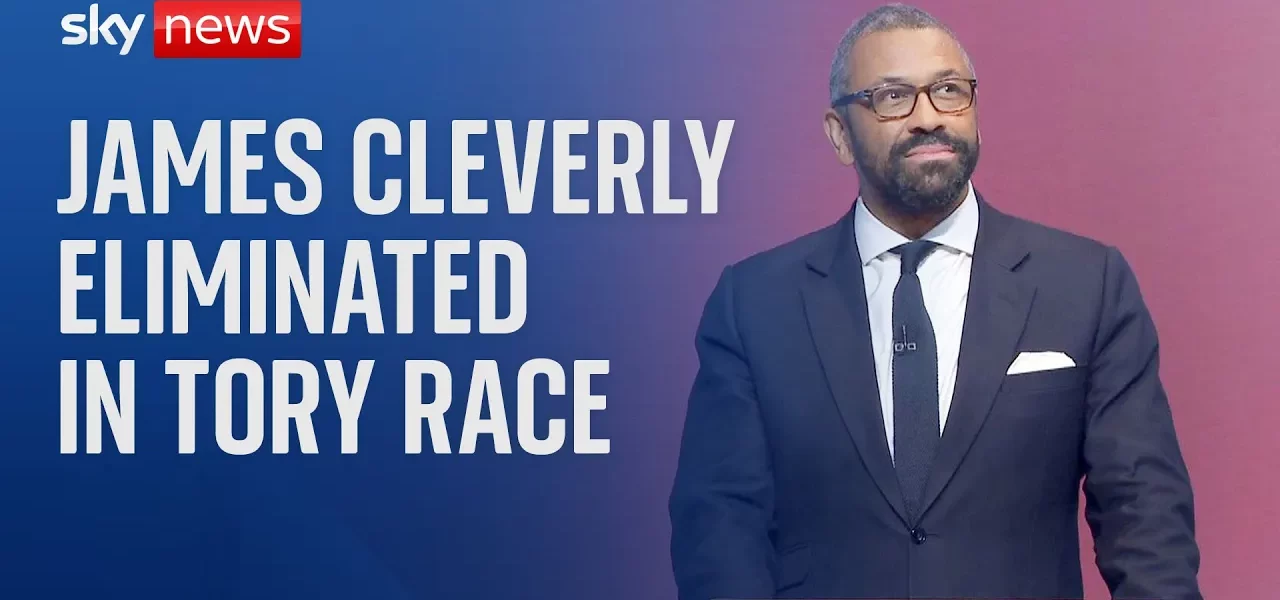Parliamentary Ballot Results: What’s Next for Conservative Leadership?

In this article, we delve into the recent parliamentary ballot results that have shaken the Conservative Party, highlighting the surprising eliminations and the key candidates moving forward. This analysis aims to provide a comprehensive understanding of the ongoing political dynamics and what they mean for the party’s future.
Introduction to the Parliamentary Ballot
The recent parliamentary ballot has produced unexpected results that could reshape the future of the Conservative Party. As reported by B. Blackman, the chairman of the 1922 Committee, the fourth and final parliamentary ballot has concluded with significant implications for the party’s leadership contest. A total of 120 Members of Parliament (MPs) cast their votes, and the results have led to the elimination of a prominent candidate, James Cleverly, leaving KY Bok and Robert Jenrick to compete for the leadership in the upcoming membership stage.
Understanding the Results
Vote Breakdown
The results from the parliamentary ballot were as follows:
- KY Bok: 42 votes
- James Cleverly: 37 votes
- Robert Jenrick: 41 votes
These numbers indicate a close contest, particularly between KY Bok and Robert Jenrick, who are only one vote apart. However, the elimination of James Cleverly has taken many by surprise, especially considering his strong performance and lead just a day prior.
Analysis of Candidate Dynamics
The dynamics among the candidates suggest a shift in the party’s ideological stance. Both KY Bok and Robert Jenrick are perceived as representatives of the right wing of the Conservative Party, while Cleverly’s centrist approach failed to resonate with the majority of MPs. This shift raises questions about the party’s direction and the influence of its members in determining leadership.
The Surprising Elimination of James Cleverly
Factors Leading to Cleverly’s Exit
Despite an engaging speech at the party conference, James Cleverly’s popularity diminished overnight. Various factors may have contributed to this unexpected outcome:
- Shifting alliances among MPs
- A potential miscalculation regarding his centrist appeal
- Influence from right-leaning factions within the party
Implications for the Party
The rejection of Cleverly’s centrist candidacy signals a potential pivot towards more conservative ideologies. Analysts suggest that this trend reflects the desire of party members for candidates who embody conservative values and ideological purity.
Looking Ahead: The Final Two Candidates
KY Bok: A Candidate for the Right
KY Bok has positioned herself as a champion of conservative ideals, promising to review government policies comprehensively. Her strategy appears to resonate well with the party’s right-wing base, making her a formidable contender in the membership round.
Robert Jenrick: Focus on Immigration and Policy Reform
Robert Jenrick’s campaign has primarily focused on immigration reform and a commitment to leave the European Convention on Human Rights. Despite backing from the more moderate factions of the party, his hardline stance may appeal to the members seeking strong conservative leadership.
Conclusion: The Road Ahead for the Conservative Party
The outcome of this parliamentary ballot has set the stage for an intriguing membership contest between KY Bok and Robert Jenrick. As the party navigates this critical juncture, the choice of leader will significantly influence its ideological direction and electoral prospects. It remains to be seen how party members will respond to the candidates’ platforms and whether they will opt for a return to more traditional conservative values. For those interested in the evolving landscape of UK politics, we encourage you to stay informed and engaged as the situation develops. Check out our other articles on the Conservative leadership and party dynamics for more insights.
“`




